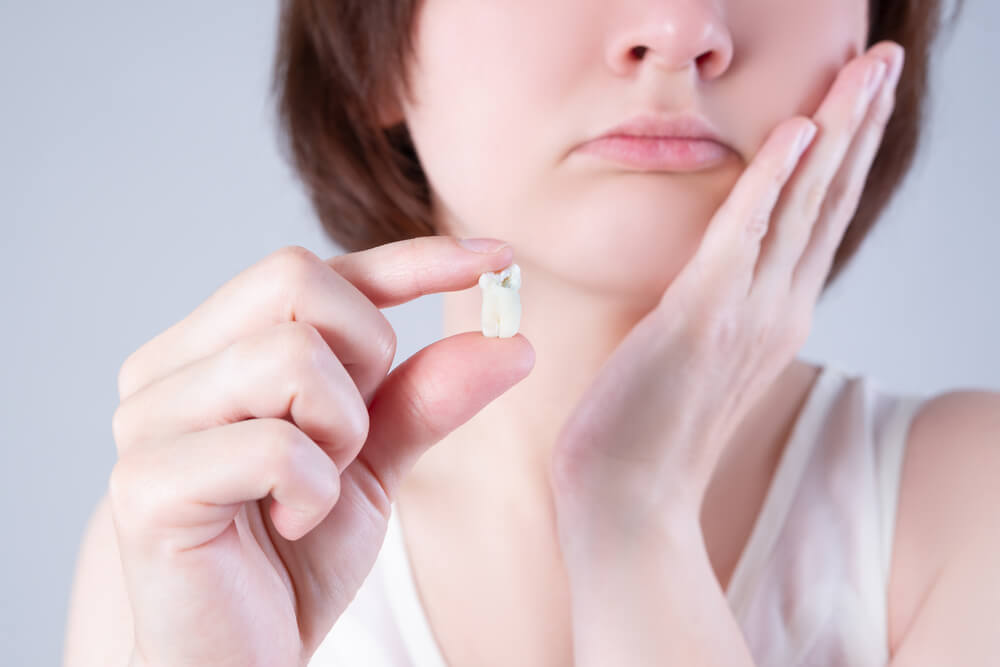Roughly 85% of people will have to have their wisdom teeth removed at some point in their lives.
Most wisdom tooth extractions occur in patients between the ages of 16 and 25. It is when their wisdom teeth tend to appear. There is a multitude of reasons why people need to get their wisdom teeth removed. Read on to find out more about what you can expect when taking your wisdom out.
Why Is Wisdom Teeth Removal So Common?
The most common cause is simply not having enough room in your jaw for your wisdom teeth to fit. Should this be your problem, you may have noticed the rest of your teeth shifting position to try and accommodate for your newly appearing wisdom teeth. It can cause unsightly misalignment and result in the need for braces or other orthodontia.
While this is inconvenient, a far more painful and problematic issue can arise when your wisdom starts to come in: impacted wisdom teeth. This condition occurs when the wisdom teeth grow into the jawbone or under the gum line as opposed to pushing through the gums and moving the rest of your teeth.
Should you suffer from impacted wisdom teeth, you are likely to feel pain. It is, in addition to being very susceptible to agonising infections. For this reason, you should have your wisdom teeth checked regularly. You should immediately undergo removal if your dentist suggests it as a course of action.
What Happens When I Have My Wisdom Teeth Removed?
The first step of the journey involves ascertaining whether or not you even need to have your wisdom teeth removed. While many people undergo extraction, not everyone has to go through the process. Your dentist will begin by examining your teeth and giving you an x-ray to determine if removal is necessary.
If it is decided that wisdom tooth removal is the best course of action to prevent overcrowding or infection, your dentist will thoroughly discuss the next steps with you. We understand that dental surgery can be a daunting prospect.
At Bayview Dental Centre, we offer a variety of sedation options for dental surgery and treatment. Depending on your needs, wisdom tooth extraction can be done under local anaesthetic with oral sedation or in a hospital setting under general anaesthetic. We can also facilitate same-day removal for emergencies in cases of infection or extreme pain.
What Is Recovery from Wisdom Tooth Removal Surgery Like?
The recovery period after having your wisdom teeth removed varies from person to person. Depending on whether you opt for a local or general anaesthetic will play a role, with the general anaesthetic taking longer to wear off. While coming off the anaesthetic, you should expect to feel woozy, groggy, and confused.
For this reason, it is recommended that you have a trusted family member or friend transport you home following your wisdom tooth extraction. In terms of pain and swelling, you can expect discomfort for at least three days following your extraction. Your dentist will provide medication to mitigate these issues as much as possible.
Additionally, you will be provided with detailed and explicit instructions for after-care. It includes information on how to clean the extraction site and avoid infection. It is crucial to follow these instructions, or you run the risk of developing a Dry Socket. Dry Socket is an intensely painful condition in which the blood clot on the extraction site is removed early, exposing both the bone and nerves.
You should avoid solid food in the days following your extraction. You must stick with soft foods such as soup, smoothies, or mashed vegetables. The extraction sites can take up to six weeks to heal and close fully. However, you can expect a massive decrease in pain and swelling after the first week following the extraction. It is very important to take good care of the extraction sites during the healing period. It is necessary to ensure that no food particles are trapped in the holes as they heal.
How Can We Help?
Here at Bayview Dental Centre, we provide a comprehensive approach to wisdom tooth extraction. It starts with a consultation, continues through the process of x-rays and extraction, and ends with regular reviews of the extraction site to ensure ongoing good dental health.
To find out more about our general dentistry services, take a look here!
Bookings can be made by contacting us today!


